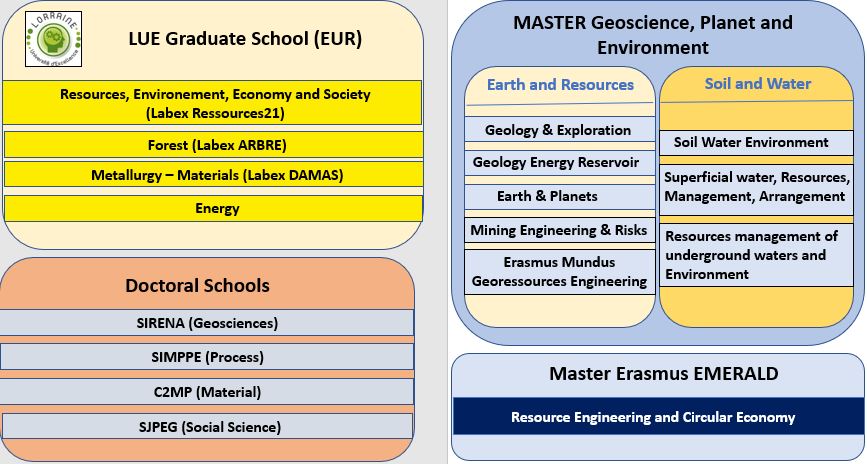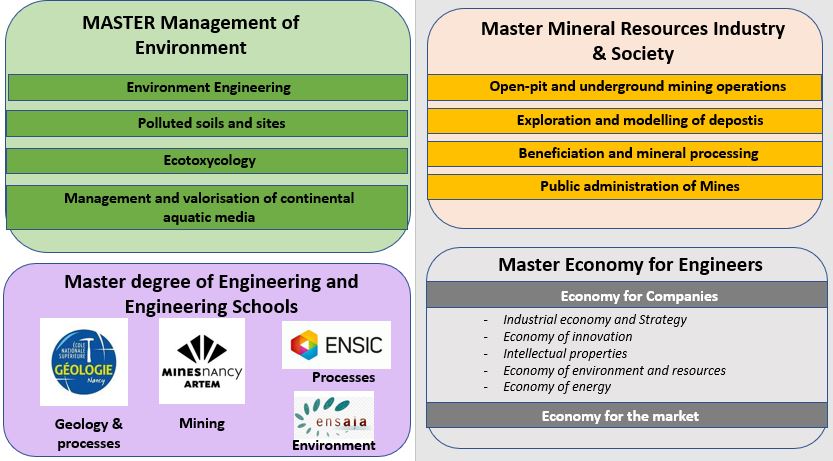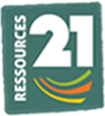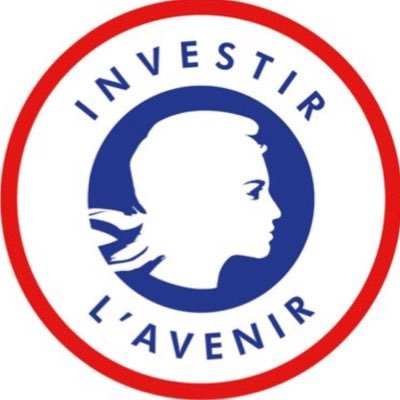The objectives RESSOURCES21 has set for itself in the field of education are the following:
- Support and develop an international visibility of the existing trainings programs in the field of Earth and Environmental Sciences in the University of Lorraine (Presence in student fairs, international student mobility funding,…).
- Offer and fund student’s projects in the field of RESSOUCES21 (Masters and PhD funding, internships, dissemination projects, …).
- Develop new training courses (Summer schools, Erasmus-mundus, training with industrials, doctoral training modules, …)
The University of Lorraine offers a wide range of degrees and training courses in the field of Earth and Environmental Sciences from the Bachelor to the PhD.
- The bachelor program is managed by the faculty of science and technology (FST)
- The masters are manages by the FST or the engineering schools (Mines Nancy and ENSG) which award about 200 masters diplomas each year (including 140 engineering degrees)
- The PhD program is managed by SIReNa - Sciences et Ingénierie des Ressources Naturelles, SIMPPE Science et ingienerie des Molecules des Produits des Procédés et de l'Energie, C2MP Chimie - Mécanique - Matériaux- Physique, SJPEG Sciences Juridiques, Politiques, Economiques et de Gestion
Since the 19th century, the region Lorraine has been marked by the mining and metallurgical industries, which have pushed the development of specific training and research in engineering and technologies in which UL has always played an important role. The particular organisation of UL strongly contributed to the emergence of high-quality research and developments thanks to the presence of classical faculties, a large number of engineering schools (MSc level) and high-quality research laboratories, which activities are centered on societal challenges. LUE has strengthened this by creating a multidisciplinary European University model with a strong engineering component supported by excellent research capacity. The LabEx R21 contributes to this striking force by implementing high quality research strongly associated to training through research. In particular, R21 contributes to the training through research of MSc students, doctoral students and postdoctoral fellows, and R21 contributes to the training of undergraduate and graduate students thanks to the different research topics of R21 that are taught at university. For the next period, the Labex will still rely on these assets but also on the LUE Graduate Schools (EUR).
The Research-Training interface will contribute to increase significantly the training level of MSc students, increase internationalization thanks to its international programs (Australia, Chine, Canada, European countries, etc.) and contribute to increase the ratio of PhD trained at UL.








